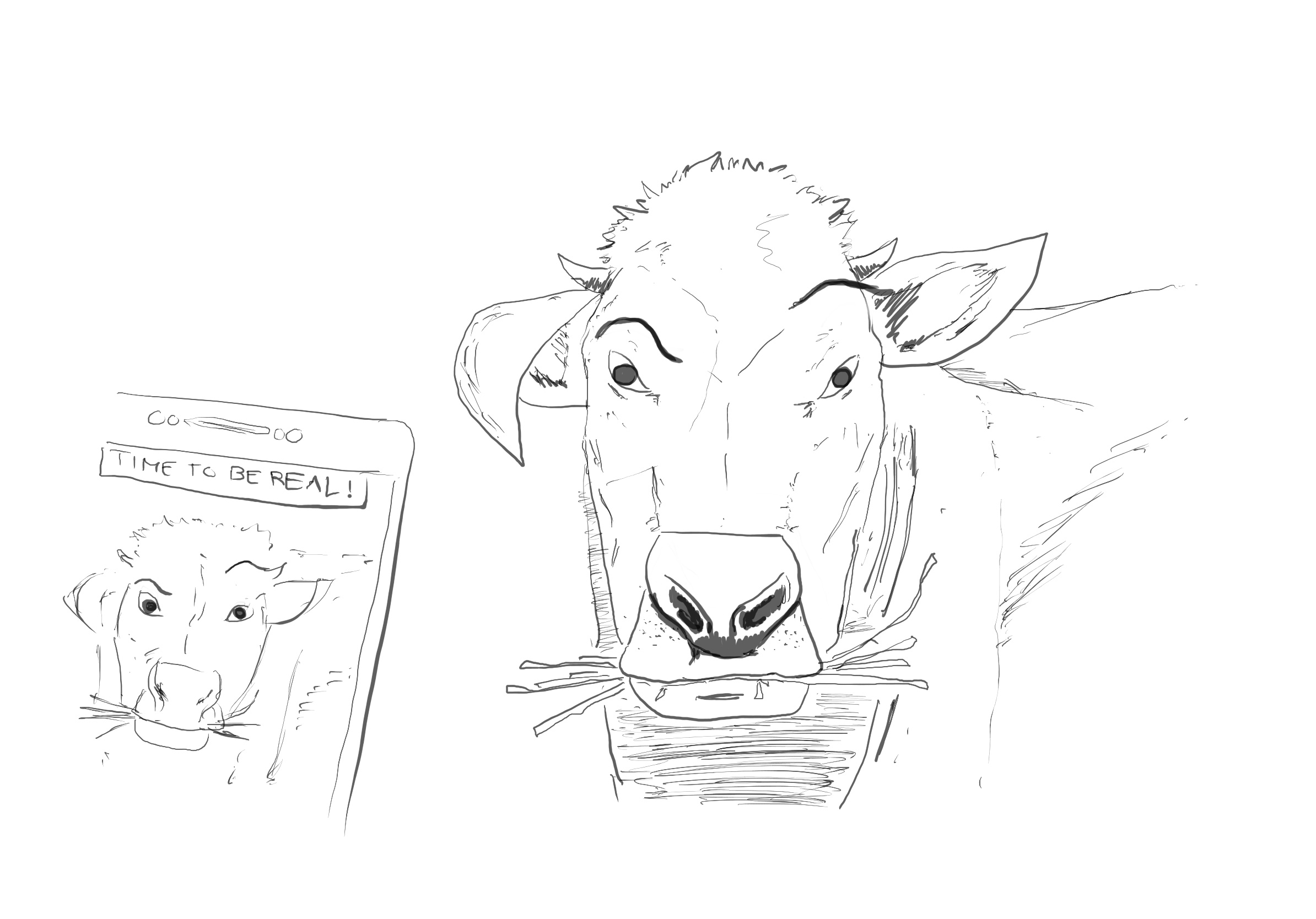Grazing cows and experience machines in new ways
April 22, 2022
 This
piece represents the opinion of the author
.
This
piece represents the opinion of the author
.
When I went from having an iPhone 8 to iPhone 13 last semester, ‘the moment’ finally felt relevant. Never have I owned such a nice camera. Having the capability to record cinematic moments felt extremely enabling, but to what end? Before owning the iPhone 13, I was never crazy about taking pictures. It seemed too reductive to me. The pressing questions seemed to be, can this moment really be reduced to a single frame? Is this picture really for my own pleasure, or for someone else’s? What is the importance of right now? I had something of an obsession with ‘living in the moment’ (or at least younger, dumber me would definitely like to think that).
In his book ‘Untimely Meditations,’ Friedrich Nietzsche paints a picture of “cattle, grazing as they pass you by: they do not know what is meant by yesterday or today, they leap about, eat, rest, digest, leap about again, and so from morn till night and from day to day, fettered to the moment and its pleasure or displeasure, and thus neither melancholy nor bored.”
Nietzsche describes the cattle as living “un-historically”—they exist only in the present and hence have no history. They are, themselves, at every instant because they only know of the now. What Nietzsche wants to say with the story of the cattle is that happiness is derived from learning to live in the moment, letting go of memories of the past, so we do not become attached to them. The ability to remember is powerful, but the ability to forget is usually underappreciated—or, paradoxically, sometimes simply forgotten.
Today, we have a powerful capacity to remember. There are various digital techniques and technologies that allow us to create an artificial or extended memory system. Social media applications such as Instagram, Snapchat or BeReal enable us to remember moments for as long as we like, whether it be for as long as we keep the post up, for a day or a couple of minutes or seconds. The ‘memories’ feature of applications like Snapchat, Google Photos or Apple Photos prompts us with photos from a year ago, photos recapping your month or a compilation of photos and videos from the weekend trip you had. Our email providers like Outlook remind us of what we need to get done from the past week or month. There is no escape from remembering.
Sometimes (or even oftentimes), these reminders and memories can be great, but I think Nietzsche raises the concern of whether they are necessary. Do we really need these memories for our happiness? If each moment is fleeting, why provide ourselves with a means to look back instead of just looking at now? Of course, most of us do not lead the passive lives of Nietzsche’s cows, but the importance of now—of the moment—does seem to be lost on us at times. Because we have this amazing ability to remember, we use it for everything. Notifications, for example, are the pinnacle of remembering: “Don’t forget to check out this news story!” “Stan just sent you a message; don’t forget to reply!” “Your resources are replenished—don’t forget to log back onto your game!”
Robert Nozick has proposed a thought experiment called “The Experience Machine.” When you are hooked up to the experience machine, you are not really doing anything other than floating around a tank, but “superduper neuropsychologists could stimulate your brain so that you would think and feel you were writing a great novel, or making a friend, or reading an interesting book.” Nozick asks: do we desire a life where we do certain things, or is having the experience of doing them enough? I’d agree with Nozick that having these experiences is not enough and, instead, we seek a life where we actually do things to become a certain type of person (e.g. can you really be considered brave just for having a ‘brave experience’ in the machine?). We don’t want to plug in to the machine for life because then we would just become “indeterminate blobs.”
Sometimes the memory features of modern technologies feel like an early stage of Nozick’s experience machine, just made incarnate. Even though I had the experiences I look at in photos and videos or even text, I sometimes am unsure if I was in that moment or looking through a screen, figuring out what experience future Saul will have looking at this captured moment. It sometimes feels like I am just going places for the sake of having an experience as opposed to the experience itself.
The distinction between doing something in that moment and having the experience of doing the thing can sometimes feel blurry, but it can also be empowering. It’s just up to us to act on that which matters to us instead of acting on everything. If everything is worth remembering, then somehow the extremely valuable moment ends up holding the same weight as the extremely worthless moment. If we choose to remember what really matters, then we can take a step to leading happier lives, as opposed to captured ones.


Comments
Before submitting a comment, please review our comment policy. Some key points from the policy: